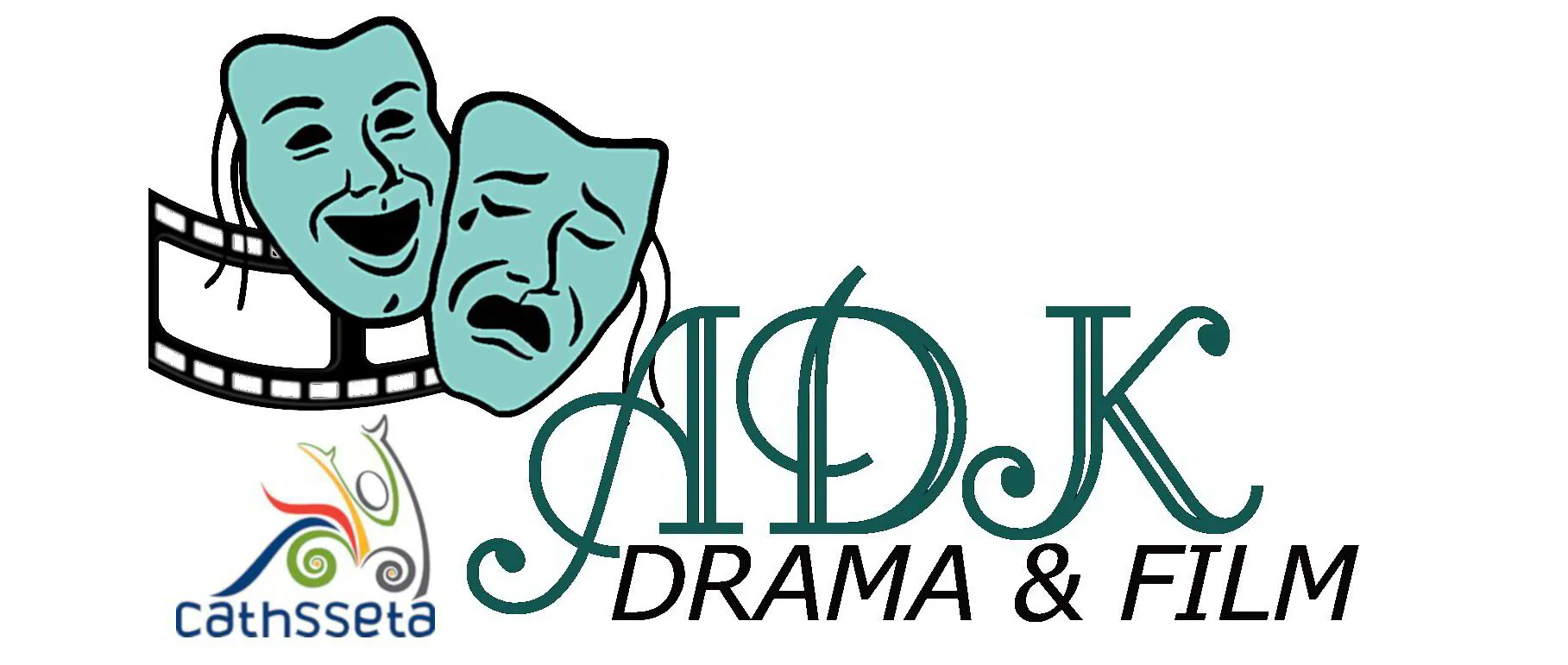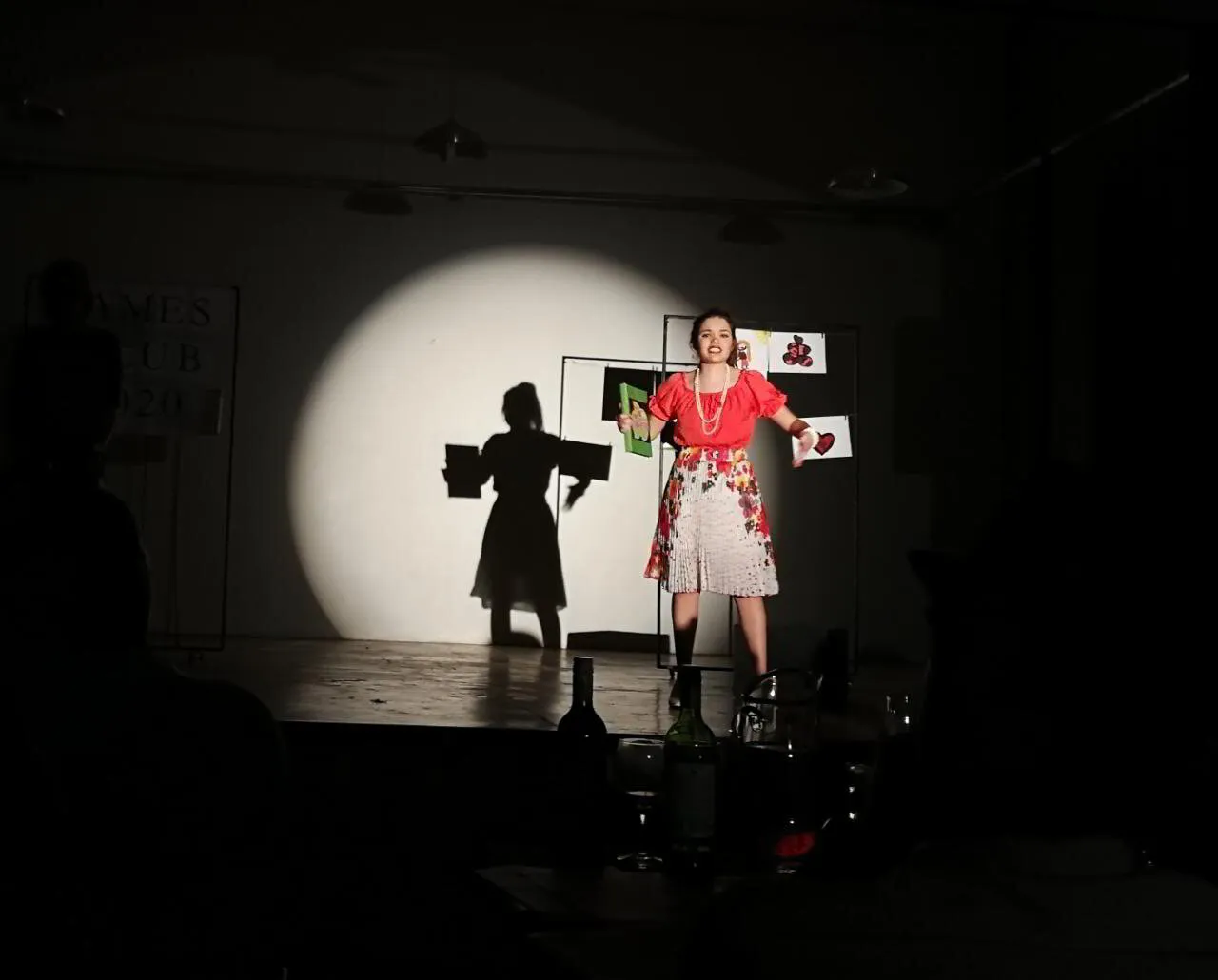Course Information
Course Information
ADK Courses
The courses offered are practical and aimed at developing basic skills that form the basis of stage, radio, film, television, and all forms of public action.
At the ADK a student is expected to attend classes regularly and as in the case of any part-time course, it is essential that preparation be done regularly at home, as passed on by the ADK lecturers.
At the end of the course, a Professional Licentiate Certificate in Drama will be issued to the adult students who pass, an NQF Level 4 Certificate in Drama to high school students, and a Drama Certificate to primary school students.
The lecturers reserve the right to refuse examination to any student who, without a valid reason, is absent from an individual or group class more than twice a term.
A written contract is concluded between the ADK and the student at the beginning of the year.
Individual Teaching
By "individual" is meant individual attention, but with other students in the class. The teaching is adapted to, and determined by, the needs of the student. The focus is on the interpretation of poetry, prose, dramatized works, and the development of voice use, perceptual ability, as well as posture and movement.
Who are the classes for?
The ADK offers drama training for all ages.
For adult students:
The ADK's drama training for adult students involves a three-year course that runs from February to November, when examinations are written. At the end of the 3 years a Professional Licentiate Certificate is awarded.
Teaching takes place during the school and university terms of the Gauteng Department of Education and involves:
- Individual class (maximum of three students per class) one hour per week
- Group classes (rehearsals of plays) one hour per week or a one-off monthly class of four hours (only for Senior ADK students)
For high school students:
The ADK's drama training for high school students runs from February to November, when exams are written. At the end of their training, the students obtain an NQF Level 4 Certificate in Drama.
Teaching takes place during the school and university terms of the Gauteng Education Department and involves:
- Group classes that pay individual attention to everyone, one hour per week
For primary school students:
The ADK's drama training for high school students runs from February to November, when exams are written. At the end of their training, the students obtain an NQF Level 4 Certificate in Drama.
Teaching takes place during the school and university terms of the Gauteng Department of Education and involves:
- Group classes that individually pay attention to everyone, one hour per week
General:
A class mark consisting of class attendance, work ability, discipline, and collaboration is calculated annually. External examiners are used.
The speech and interpretation program is repeated every year, but the material becomes more difficult and more challenging each year.
The course content is as follows:
Practical:
The course content is as follows:
Practical:
Voice instruction for stage and radio
Poetry and Prose
Drama teaching
Camera instruction
Voice instruction for stage and radio
Poetry and Prose
Theater training
Camera training
At the end of each year, a practical examination is written in which the student's progress with regard to aspects covered in the course are tested.
Theory:
Every year the level of theory becomes more complicated. New concepts are covered every year.
Theory includes the following:
A research task for each year of study
We cover theater history
We cover different types of drama pieces (eg monologue, conversation, etc.)
We cover different drama genres
A theoretical exposition of what a production is, and all its aspects
The content as outlined above is spread over the duration of the course and becomes more intensive each year.
The syllabus of the junior courses is the same as the senior course but at a less advanced level. There are no group classes.
Theory:
Every year the level of theory becomes more complicated. New concepts are covered every year.
Theory includes the following:
A research task for each year of study
We cover theater history
We cover different types of drama pieces (eg monologue, conversation, etc.)
We cover different drama genres
A theoretical exposition of what a production is, and all its aspects
The content as outlined above is spread over the duration of the course and becomes more intensive each year.
The syllabus of the junior courses is the same as the senior course but at a less advanced level. There are no group classes.
Dokumente
We'd love to hear from you!
If you have any questions with regards to our classes, judges or courses, please complete the form below, to get hold of us.
Tel: 076 538 9967 / 082 781 8032
info@adk-drama.co.za
Your information is private and will be protected w.r.t. POPIA.
We'd love to hear from you!
If you have any questions with regards to our classes, judges or courses, please complete the form below, to get hold of us.
Tel: 076 538 9967 / 082 781 8032
info@adk-drama.co.za
Your information is private and will be protected w.r.t. POPIA.
Our Social Media Pages

